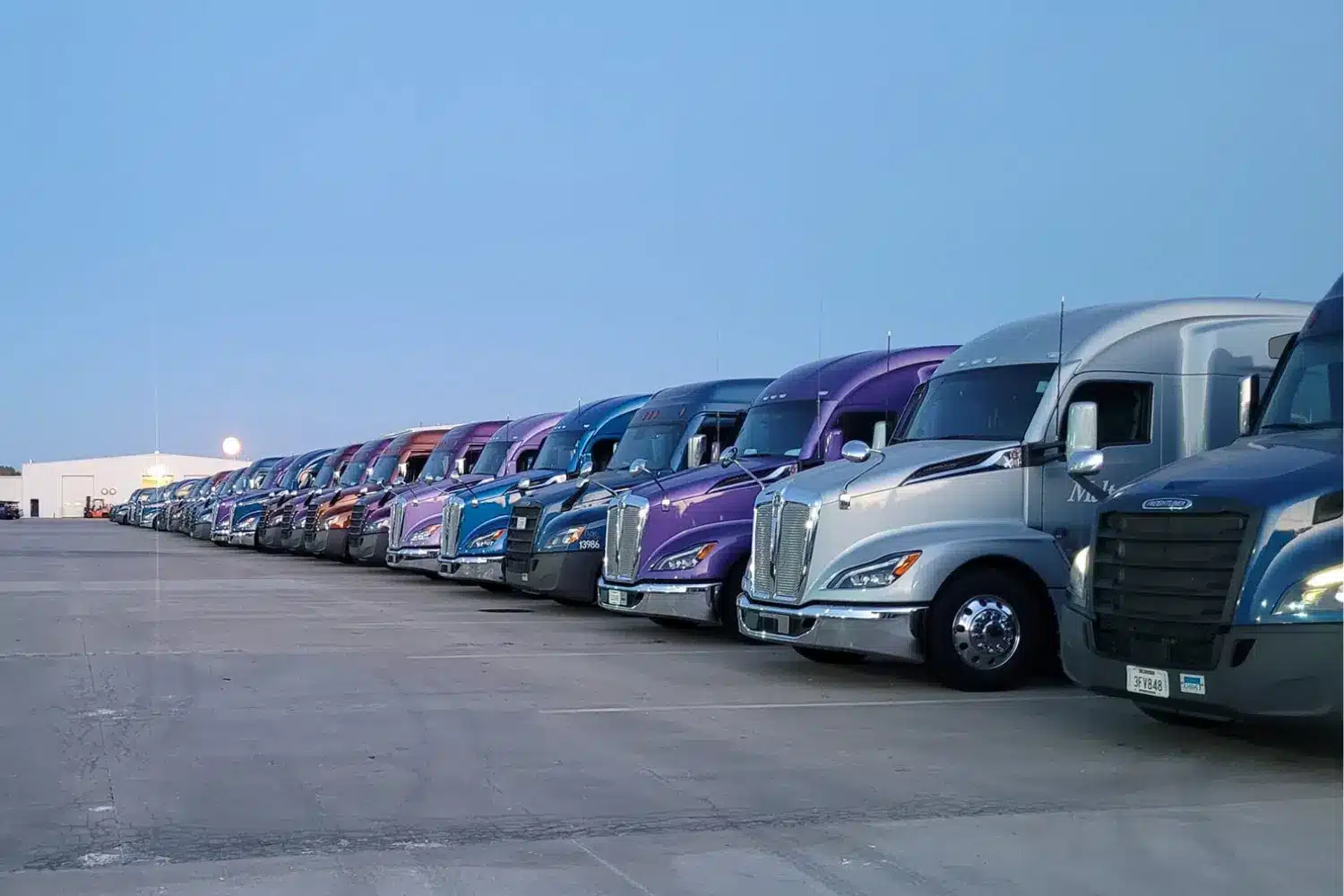
Fleet Management Strategies for Efficiency
Fleet management is one of the foundational building blocks of efficiency for any business in transportation. Whether you’re maintaining a handful of small delivery vans or hundreds of semi-trucks, making sure you’re operating them efficiently allows you to provide the best possible service while lowering costs and risks. As technology continues to evolve, the tools available for fleet management are becoming increasingly sophisticated.
Let’s explore some of what fleet management means and how you can implement it:
What is Fleet Management?
Fleet management includes the oversight of a company’s vehicle fleet. This involves a range of tasks designed to ensure that vehicles operate effectively, safely, and cost-efficiently. Some primary tasks of fleet management include:
• Vehicle Maintenance: Ensuring all vehicles are in optimal condition and are set on a regular maintenance schedule.
• Fuel Management: Monitoring fuel consumption and expenses and implementing strategies to reduce fuel costs and improve efficiency.
• Route Optimization: Planning and optimizing routes to enhance efficiency, reduce travel time, and lower fuel consumption.
• Compliance and Documentation: Ensuring that all vehicles meet regulatory requirements, including licensing, insurance, and emissions standards. This also extends to ensuring that drivers within your fleet are compliant with training and safety standards.
How Has Fleet Management Changed Through Technology?
Technology has completely changed the landscape of fleet management by introducing tools and systems that offer greater control, visibility, and efficiency in real-time. Key advancements include:
• Telematics and GPS Tracking: Modern fleet management systems use GPS and telematics to track vehicle locations, monitor driving patterns, and gather data on vehicle performance.
• Automated Maintenance Alerts: Advanced systems can automatically alert fleet managers about upcoming maintenance needs based on vehicle data, helping to prevent breakdowns, and potential accidents or incidents caused by poorly maintained equipment.
• Fleet Management Software: Software solutions integrate various aspects of fleet management, including data analytics, scheduling, maintenance tracking, fuel management, and driver performance. These platforms provide a centralized view of fleet operations, enabling better decision-making with real-time data.
Why is Fleet Management So Important for Your Business?
A well-managed fleet is critical for success for a variety of reasons. One of the most important is lowering transportation costs – if you’re managing your fleet well, you can maintain a better focus on any fuel and repair costs that might come up and avoid unnecessary spending. You’re also likely to save money on repairs if you’re consistently maintaining your vehicles before costly damage occurs.
Managing your fleet well can also lead to increased operational efficiency and safer driving, since part of fleet management is keeping an eye on both vehicles and drivers to ensure safety and regulatory requirements are being upheld. All of this combined results in a better experience for your customer, who will be receiving reliable and timely deliveries as a result of your efforts.
How Can You Best Manage Your Fleet?
• Utilize Telematics: Invest in a telematics system to gain real-time visibility into your fleet’s operations. Use the data to monitor vehicle performance, optimize routes, and ensure driver performance and safety are up to par.
• Preventative Maintenance: Establish a routine preventive maintenance schedule to keep vehicles in top condition. Regular checks and timely repairs help avoid costly breakdowns and prolonged delays, extending the vehicle’s overall lifespan on the road.
• Route Optimization: Use route optimization software to plan the most efficient routes for your drivers, reducing fuel consumption, travel time, and improving overall productivity.
• Review Data Analytics: Use data analytics tools to analyze performance metrics and identify areas for improvement from fuel usage to safe driving behavior. Regularly audit data to make informed decisions and implement necessary changes.
• Monitor Fuel Usage: Track fuel consumption and implement strategies to reduce waste, such as driver training on fuel-efficient driving practices and using fuel management systems.

Fleet management is more than just an inevitable logistical function; it’s a strategy that significantly impacts a business’s overall success. By focusing on efficiency, leveraging technological advancements, and continually optimizing practices and technology, you can ensure that your fleet operates at its best, driving your business to success.
At Melton, we maintain a fleet of over 1,300 drivers and trucks with the utmost care and diligence. You can rest assured knowing our late-model equipment and specially trained drivers can deliver your freight on time and damage-free. Learn more about how Melton can handle your flatbed freight here.
